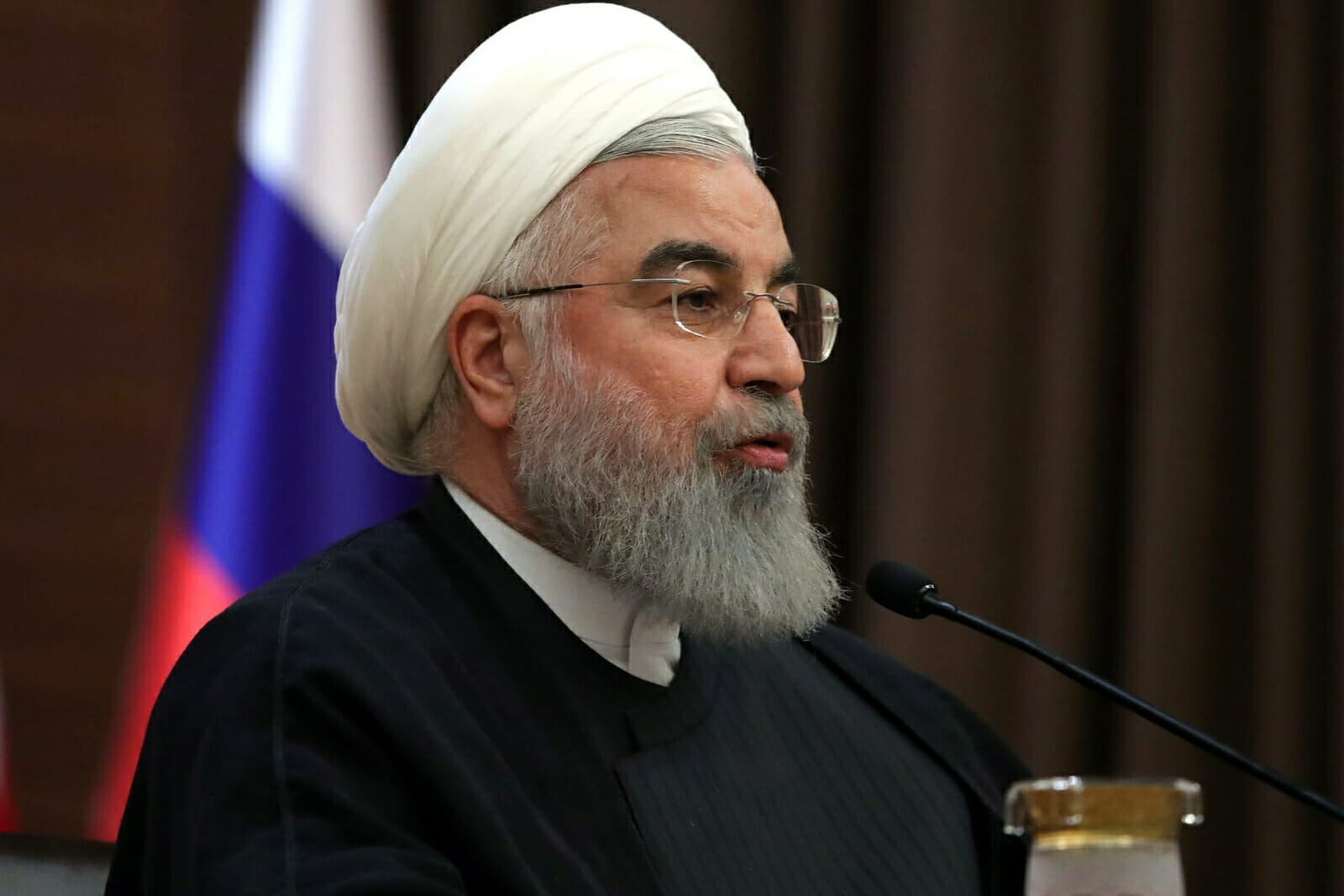
Four Things that Iran’s Rouhani Needs to Rectify Before it’s Too Late
The United States is run by a businessman turned politician who is unwavering in his ignorance about many essentials including respect for multilateralism and concern for the value of human life outside the US borders.
It’s difficult to convince Donald Trump to be mindful of the suffering of ordinary Iranian citizens while imposing new sanctions on the Middle East nation or instruct him to read 109 pages of the Joint Comprehensive Plan of Action (Iran nuclear deal) to figure out that long before announcing the unilateral withdrawal of the United States from the agreement, he started violating its letter and spirit through his unhelpful public statements about the JCPOA being a badly negotiated accord that should have been ripped up. Many critics of the Trump administration believe he even doesn’t clearly know what’s included in the JCPOA.
However, this “strong man” whose reliance on strongman politics and dissemination of fear and uncertainty have so far worked for him, is now the strongest man in the world. Like it or not, he is the key-holder of an arsenal of 7,000 nuclear weapons, and by virtue of being the President of the United States, his words are effective even when they are expressly elementary, unpremeditated and unsophisticated for a president.
Donald Trump had threatened to totally destroy North Korea. However, his flamboyant, flashy summit with the North Korean dictator in Singapore which he assertively called a success thanks to an extraordinary investment in etiquette, protocol, media coverage and “lengthy handshakes” made it known to everybody that Trump cannot be held to account for what he said two months or three months or twelve months ago. He should be questioned over what he signs, and what he did sign along with the North Korean Chairman is supposed to be his signature foreign policy achievement: denuclearization in the Korean Peninsula and a vague promise of reconnection to the international community and the end of North Korean isolation.
Now, by undoing the signature foreign policy achievement of Barack Obama, i.e. the Iran deal, Trump is telling us, the people of the world, that he means what he says: what the average taxpayer, especially in the Southern states, expect a “strong man” to do.
Trump’s extremism, his aggressive foreign policy and the reasons he has come down so hard on Iran, however, are too much to be digested and understood by the standards of Iranian leadership. Iran’s moderate President Hassan Rouhani and his Foreign Minister Javad Zarif hardly expected Donald Trump to be stepping in the White House when they were signing the nuclear deal with Barack Obama’s administration. And now that Trump is apparently hell-bent on defeating America’s nemesis in the Persian Gulf and is investing hugely on slapping an all-out diplomatic and economic embargo on Iran, Rouhani doesn’t seem to be particularly ready to foil his American counterpart’s plots. At the same time, Rouhani seems to be too unarmed and vulnerable when it comes to the hardliners in Tehran who are now celebrating the end of the nuclear deal.
President Trump introduced an initial set of sanctions on Iran in August after de-certifying the nuclear deal and is going to impose a new set of sanctions in November. When the new sanctions come, Iran’s already struggling economy will further collapse and it’s difficult to predict what will happen to Iran’s rial, which is already one of the world’s most worthless currencies, or what will happen to the middle-class Iranians whose lives are so negatively affected and will continue to be affected by the Tehran-Washington rivalry.
There are a few things, however, that President Rouhani needs to fix before it’s too late in order to rescue his administration: the crisis is already unfolding. If he is able to implement these changes in the near future, the Iranian people will most probably not curse him for betraying them and the reform movement in the country when they go to polls in 2021 to elect a new president.
1. Fulfill domestic politics promises. Hassan Rouhani had promised that he will oppose dogmatism, extremism, and conservatism. During his presidential campaign, he had promised to free the prominent political prisoners, oppose a ban on social media introduced under President Ahmadinejad, grant more concrete socio-political freedoms to the journalists, students, and activists, respect people’s privacy and respect the people’s basic human rights. None of these promises have been fulfilled so far. It’s now time for Rouhani to take action on the domestic front and say no to the hardliners who are against these principles and promises. There’s no way for Rouhani to satisfy the Iranian people unless he stands with them and champions the causes for which they elected him, even if it’s a costly assignment. And as of this moment, there are tens of students, journalists, environmental activists and university professors behind the bars in Iran.
2. Fix Iran’s relations with the Arab world. Iran doesn’t maintain close and cordial relations with its Arab neighbours. There are currently no relations between Iran and Saudi Arabia. Iran doesn’t have official diplomatic relations with Morocco – which is not a neighbour, but a major Muslim, Arab country. UAE is only a major economic partner and literally at loggerheads with Iran on many things. Bahrain also considers Iran a major threat and a foe. Few foreign policy experts understand why there are no robust relations with Egypt. The same applies to the rest of the Arab world with a few exceptions. To resist the pressure of US sanctions and the loneliness they bring, preclude further instability in the Middle East and the neighbourhood and prevent the uncontrolled spike of the oil prices, Iran needs to reduce tensions with the Arab world and mend its flawed ties with these countries. There is no better president than Hassan Rouhani to make this long-overdue détente happen.
3. Assuage anxiety over Iran’s regional policies. Almost the entire world is convinced that Iran’s regional policies aren’t productive and conducive to stability and peace in the Middle East. Iran has heard in the form of friendly notifications from its partners and harsh warnings from its adversaries that it should stop getting involved in proxy wars in the Middle East and interfering in the affairs of other countries, including in the Israeli-Palestinian conflict, in which its role is perceived to be hugely destructive and intrusive. Rouhani needs to show some innovativeness and creativity in foreign policy and prevent non-relevant role-players in Iran’s complex power structure from imposing extra costs on the country by dragging it to regional conflicts. It’s time for Iran to cede, once and for all, its extra-territorial ambitions and realize what the world wants from Iran and what the Iranian average citizen wants is that it behave as a normal country, even though its aspirations for being a regional superpower might demand otherwise.
4. Negotiate with any US administration. Iran should solve its differences with the United States through engaged diplomacy and negotiations. Iranian people give more priority to a healthy economy, improved incomes, higher standards of living, enhanced environmental indices and good relations with the outside world than they do for nuclear technology and centrifuges. There’s no reason for Iran to be in a constant hide and seek with the United States 40 years after the cutting off of bilateral relations. Hassan Rouhani should start solving its differences, one by one, with the United States in the negotiation room. The United Nations, European Union, and Russia are good options for acting as intermediaries. These negotiations don’t need to be as ostentatious and costly as the Trump-Kim Summit. They even don’t need to be publicized. They need to be done for the sake of solving some problems, not making headlines.
By taking these four steps as prudently as he can, President Rouhani will inch closer towards ensuring that his administration isn’t prone to impeachment, implosion or other predicaments as the US sanctions bite. He will also prevent Iran’s ailing economy from collapsing in its entirety and as a result, will build up popular support for himself when an unconditional and strong backing from the public is much needed.
Iran is experiencing difficult days which is good news for its many rivals across the world. Hassan Rouhani was re-elected in 2017 with 57.14% of the popular vote – 23.5 million Iranians voted for him in a face-off with a major right-wing cleric. He doesn’t have anything to lose and he should start with these preparatory steps quickly before it’s too late for him to save his reputation, his administration and even his country from a bigger evil: war.

